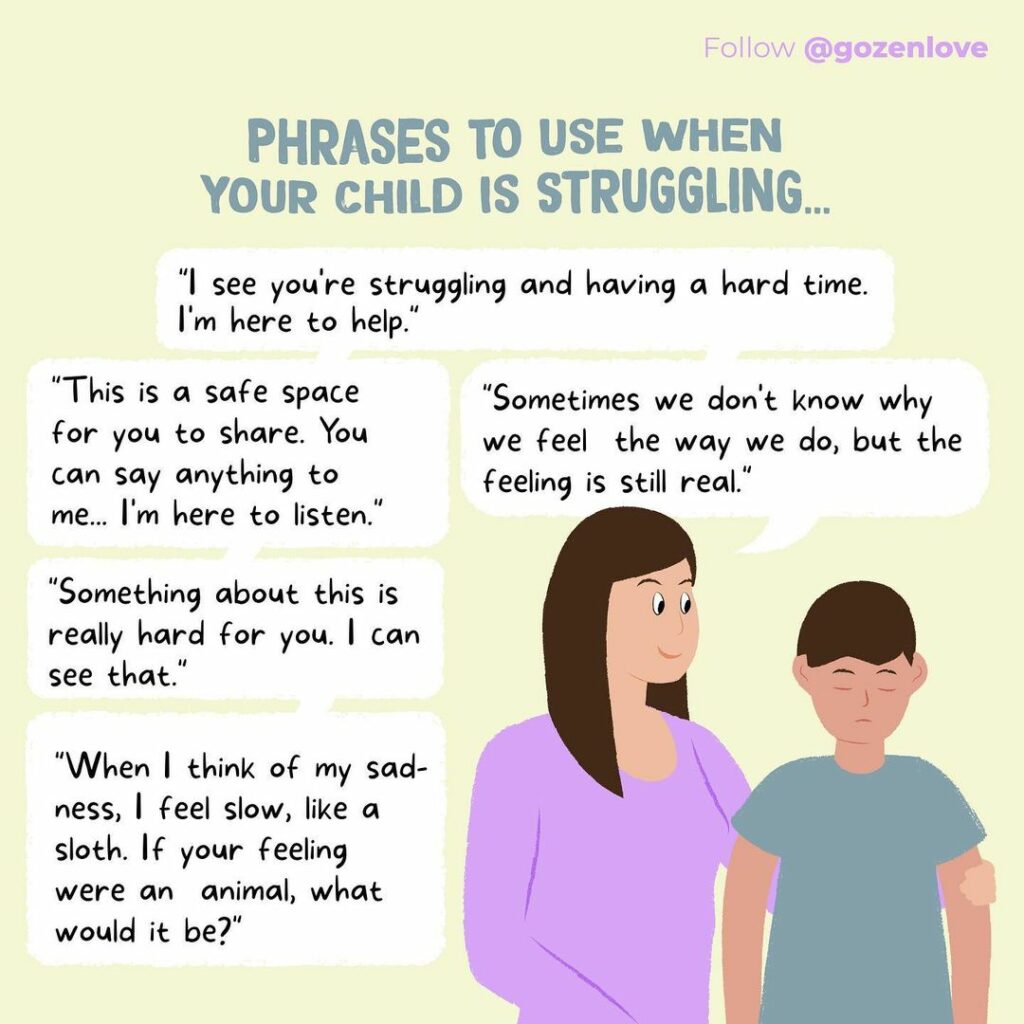I remember coming home from school one day and feeling completely overwhelmed. Everything seemed to be crashing in on me and as I went to my room to begin my homework, my dad came in asking for help with the chores. The next ten minutes that followed were me venting and breaking down to my dad. Once I was done, I immediately apologized, to which my dad replied,
“It’s okay. Everyone struggles sometimes, and I want you to know that this is a safe space.”
Those simple words resonated with me. From there, I understood that it was okay to have negative feelings and there was no judgment from my dad. It didn’t occur to me how many things I was struggling with until I opened up. I knew from then on that I could trust my dad with whatever I was feeling.
Struggling is a natural part of life. Our kids struggle with many things—from grades, trying to fit in, working hard to excel in a sport, peer pressure; the list is endless.
It can be heartbreaking to hear our children struggling, and even harder to respond without trying to fix the problem. Our kids are problem solvers if we give them the space to first feel their emotions. By helping them connect with their emotions versus fixing them, we allow them to feel their emotions safely and build skills of resiliency.
If you have a struggling child at home, here are some phrases you can say to connect with them.
1. “I see you’re struggling and having a hard time. I’m here to help.”
Kids sometimes fear opening up because they are embarrassed. It can be difficult for them to verbalize or ask for help when they need it. Letting them know that you see they are struggling and are there to help, opens the door for them to come to you when they are ready. It also reassures them that they can count on you for help in the future. Even if they do not accept help immediately (which they might), they will know you are a safe space they can count on.
2. “This is a safe space for you to share. You can say anything to me….I’m here to listen.”
As adults, we know the importance of creating safe spaces when others come to us for emotional support. Just as we value that, it’s crucial that our children know they can come to us with open arms and zero judgment. When speaking to your struggling child, let your facial expressions and body language convey that you are present and ready to listen. Try to leave any reactions at the door. Remind your child that they are safe and they can share and feel anything without judgment.
3. “Sometimes we don’t know why we feel the way we do, but the feeling is still real.”
We often attach our feelings to some cause. “I’m sad because my friend is unwell or I’m disappointed because I didn’t make the swim team.” But what happens when our children can’t pinpoint or find the cause of their feelings? Assure your child that not knowing is okay and that the feelings they’re experiencing are still valid and real. Knowing that they’re safe to explore and feel their feelings without needing to explain will help them feel safe, heard, and validated.
4. “Something about this is really hard for you. I can see that.”
When our children are struggling with something, it can make them feel alone. Recognizing and acknowledging that you see them struggling helps them feel seen and reminds them that they aren’t alone. While we don’t want to immediately jump in to fix everything, following up with a few reassuring phrases like ‘It will be okay, things will get better.” Or, “If you allow me, I can help you get there,” can open the door for your child to feel safe to accept help.
5. “When I think of my sadness, I feel slow, like a sloth. If your feelings were an animal, what would it be?”
Bring a bit of playfulness to the situation by comparing your feelings to an animal. This can help you better understand what your child is feeling. It can also give you an idea of how you can help. For instance, your child may say they feel like an opossum. This animal tends to get defensive when it feels threatened. Breaking down their feelings into words or ways they can more easily describe, can also help you know how to guide the conversation in helping them acknowledge and recognize what they’re struggling with.
As a parent, you may not have all the answers for your struggling child. As much as we want to sweep in and rescue them, don’t give up! Your conversations won’t always go as planned but using these phrases as a guide, you can garner deeper conversations and help your child explore their emotions safely with you. For additional resources to help your struggling child, subscribe to the GoZen! Summit Library, where you can find over 100+ videos to help your child become stronger and more resilient!

